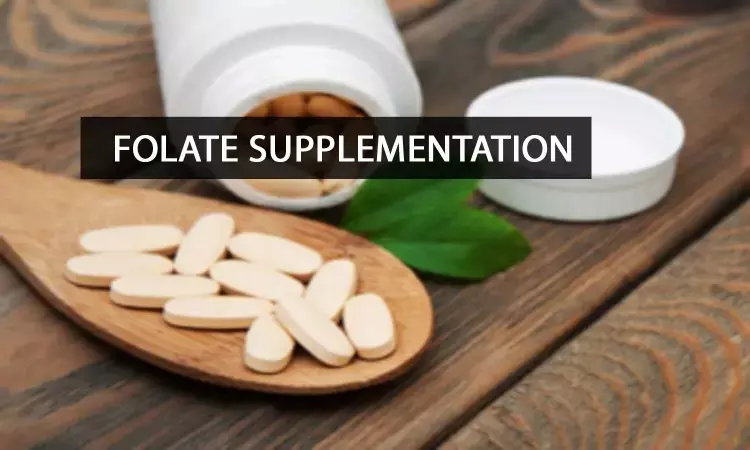- Home
- Medical news & Guidelines
- Anesthesiology
- Cardiology and CTVS
- Critical Care
- Dentistry
- Dermatology
- Diabetes and Endocrinology
- ENT
- Gastroenterology
- Medicine
- Nephrology
- Neurology
- Obstretics-Gynaecology
- Oncology
- Ophthalmology
- Orthopaedics
- Pediatrics-Neonatology
- Psychiatry
- Pulmonology
- Radiology
- Surgery
- Urology
- Laboratory Medicine
- Diet
- Nursing
- Paramedical
- Physiotherapy
- Health news
- Fact Check
- Bone Health Fact Check
- Brain Health Fact Check
- Cancer Related Fact Check
- Child Care Fact Check
- Dental and oral health fact check
- Diabetes and metabolic health fact check
- Diet and Nutrition Fact Check
- Eye and ENT Care Fact Check
- Fitness fact check
- Gut health fact check
- Heart health fact check
- Kidney health fact check
- Medical education fact check
- Men's health fact check
- Respiratory fact check
- Skin and hair care fact check
- Vaccine and Immunization fact check
- Women's health fact check
- AYUSH
- State News
- Andaman and Nicobar Islands
- Andhra Pradesh
- Arunachal Pradesh
- Assam
- Bihar
- Chandigarh
- Chattisgarh
- Dadra and Nagar Haveli
- Daman and Diu
- Delhi
- Goa
- Gujarat
- Haryana
- Himachal Pradesh
- Jammu & Kashmir
- Jharkhand
- Karnataka
- Kerala
- Ladakh
- Lakshadweep
- Madhya Pradesh
- Maharashtra
- Manipur
- Meghalaya
- Mizoram
- Nagaland
- Odisha
- Puducherry
- Punjab
- Rajasthan
- Sikkim
- Tamil Nadu
- Telangana
- Tripura
- Uttar Pradesh
- Uttrakhand
- West Bengal
- Medical Education
- Industry
Modest folate-intake improves of long-term survival of adults at high-risk of CVD: Study

China: A recent study has found that modest folate intake may improve long-term survival in adults at high risk of cardiovascular disease (CVD) and emphasized the potentially deleterious effects of excess folic acid supplementation in such people. The study appears was published in the journal Clinical Nutrition on November 13, 2021.
Folic acid supplementation is common practice in people at high risk of CVD. This is due to the beneficial effect of folate on cardiovascular disease. However, still, there is a lack of long-term prospective investigations regarding the association of folate-intake with CVD mortality and all-cause mortality among this specific population.
Xiaoqing Xu, Harbin Medical University, Harbin, China, and colleagues, therefore, aimed to assess the association of folate intake with CVD mortality and all-cause mortality.
For this purpose, the researchers enrolled a total of 14,234 participants at high CVD risk. They measured total folate equivalent (TFE), dietary folate equivalent (DFE), folic acid in fortified food, food folate, folic acid supplements, red blood cell (RBC) folate, and serum folate. The main outcome measures were CVD mortality and all-cause mortality from baseline until 31 December 2015.
Based on the study, the researchers found the following:
· During the 98,890 person-year follow-up, 2036 deaths including 682 deaths due to CVD were documented.
· After multivariate adjustment, a J-shaped association was found: modest intake of TFE and DFE was associated with lower risk of CVD mortality and all-cause mortality, whereas higher intake did not persistently reduce these risks.
· Compared to the participants without folic acid supplementation matched 28-covariates using propensity score, folic acid supplementation was associated with a higher risk of CVD mortality (HR:1.44) and all-cause mortality (HR:1.28).
· The levels of serum-folate and RBC-folate in participants with folic acid supplementation were significantly greater than participants without folic acid supplementation (41.8 nmol/l vs. 64.2 nmol/l, for serum-folate; 1201 nmol/l vs. 1608 nmol/l for RBC-folate).
· Compared with the lowest-quintile of serum-folate, the second-quintile was consistently associated with CVD mortality (HR:0.72) and all-cause mortality (HR:0.78).
· Compared to the lowest-quintile of RBC-folate, the second-quintile was associated with lower all-cause mortality (HR:0.71), whereas the highest-quintile was associated with higher CVD mortality (HR:1.40).
· The J-shaped association of serum-folate and RBC-folate with CVD-mortality and all-cause mortality was also demonstrated, further supporting the results of TFE and propensity score analysis.
To conclude, the study showed the beneficial effects of modest folate intake on the improvement of long-term survival, and emphasized the potentially deleterious effects of excess folic acid supplementation among US adults at high-risk of CVD.
Reference:
The study titled, "Association of folate intake with cardiovascular-disease mortality and all-cause mortality among people at high risk of cardiovascular-disease," was published in the journal Clinical Nutrition.
Dr Kamal Kant Kohli-MBBS, DTCD- a chest specialist with more than 30 years of practice and a flair for writing clinical articles, Dr Kamal Kant Kohli joined Medical Dialogues as a Chief Editor of Medical News. Besides writing articles, as an editor, he proofreads and verifies all the medical content published on Medical Dialogues including those coming from journals, studies,medical conferences,guidelines etc. Email: drkohli@medicaldialogues.in. Contact no. 011-43720751


